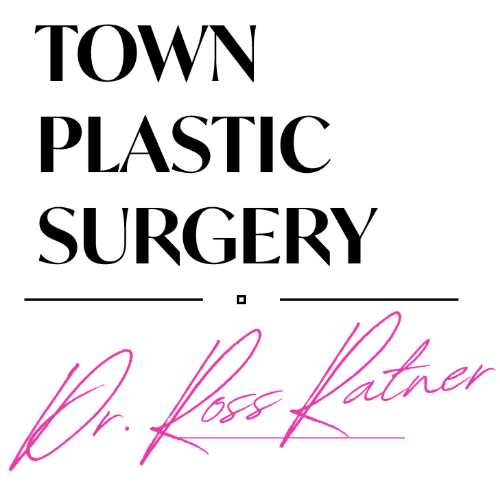
Advanced
PHRENIC NERVE Surgery
For DIAPHRAGM PARALYSIS
Restore Breathing Function With
Specialized Microsurgical Repair
✓ Top Phrenic Nerve Surgery Specialists
✓ Improved Breathing & Diaphragm Function
✓ Advanced Nerve Reconstruction
✓ Most Insurance Plans Accepted
Why choose Town Plastic Surgery for Surgery To Treat Phrenic Nerve Injury & Diaphragm Paralysis in nyc & Long Island?
Top Phrenic Nerve Injury Repair Surgeons in NYC and Long Island
Town Plastic Surgery is your trusted destination for surgery to treat phrenic nerve injury & diaphragm paralysis in NYC and Long Island.
Expert Surgeons: Board-certified specialists with extensive experience in treating phrenic nerve injury.
Insurance-Friendly: We accept most major insurance plans, making it easier for you to access the care you need.
Hospital Privileges: Access to over 20 top hospitals across Manhattan and Long Island.
Exceptional Results: Reduced shortness of breath, improved breathing strength, and restored quality of life with high patient satisfaction.
Breathe easier, regain energy, and improve your daily function with advanced surgical treatment for phrenic nerve injury and diaphragm paralysis. Contact us today!
Have questions about a
Phrenic Nerve Injury & Diaphragm Paralysis?
Ask our expert Phrenic Nerve surgeons:
Phrenic Nerve Surgery
Patient Testimonials
⭐️⭐️⭐️⭐️⭐️
“When I was diagnosed with phrenic nerve injury, I could barely catch my breath and felt exhausted doing even simple things. The team at Town Plastic Surgery was amazing — they explained my options clearly and made me feel supported from the very first consultation. Dr. Ratner performed the nerve repair surgery with such precision and care. Within weeks, my breathing began to improve, and now I can walk and sleep comfortably again. I’m so thankful for their expertise — this surgery truly gave me my life back.”
Recent Town Plastic Surgery Phrenic Nerve Surgery Patient
Ready to schedule your
free consultation for
Phrenic Nerve Surgery?
Select a time now:
Check Your Insurance Coverage
Overview
What Is Phrenic Nerve Injury & Diaphragm Paralysis?
Phrenic nerve injury occurs when the nerve controlling the diaphragm — the muscle responsible for breathing — becomes damaged or compressed. This can result in partial or complete paralysis of the diaphragm, leading to symptoms such as shortness of breath, fatigue, difficulty sleeping, and reduced exercise tolerance.
Causes may include surgical trauma, nerve compression, viral infection, or trauma to the neck or chest. In some cases, the condition can improve on its own; however, persistent paralysis often requires specialized surgical treatment to restore diaphragm movement and breathing function.
What Is Phrenic Nerve & Diaphragm Paralysis Surgery?
Phrenic nerve surgery is a precise microsurgical procedure that repairs or reconstructs the damaged nerve to restore communication between the brain and diaphragm. Depending on the patient’s condition, treatment may involve:
Nerve decompression or grafting
Microsurgical nerve reconstruction
Diaphragm plication to improve lung expansion when paralysis is long-standing
Each surgery is customized based on nerve function, duration of injury, and individual respiratory needs. The goal is to restore natural breathing mechanics and improve overall lung performance.
Benefits of Phrenic Nerve & Diaphragm Surgery
Improved Breathing Function
Restore diaphragm movement and increase lung capacity.Reduced Shortness of Breath & Fatigue
Experience more energy and comfort in daily life.Better Sleep & Exercise Tolerance
Wake rested and return to physical activity with confidence.Restored Quality of Life
Enjoy freedom from respiratory limitations.Insurance May Cover Medically Necessary Surgery
Procedures for proven nerve injury or paralysis are often eligible for coverage.
Candidates for Phrenic Nerve or Diaphragm Surgery
You may be a candidate if you’ve been diagnosed with diaphragm paralysis or phrenic nerve injury and continue to experience symptoms such as:
Shortness of breath, especially when lying down
Chest tightness or limited lung expansion
Difficulty exercising or speaking for long periods
Fatigue not explained by other conditions
Candidates often include patients who have had prior heart, neck, or lung surgery, or traumatic injury affecting the nerve. Our team will review your history, imaging, and diagnostic results to determine if surgery is the right solution for you.
Insurance Coverage for Phrenic Nerve & Diaphragm Surgery
When medically necessary, phrenic nerve repair and diaphragm plication procedures may be covered by insurance. Our experienced staff assists with benefit verification, documentation, and preauthorization to help you receive the coverage you deserve.
We handle the details so you can focus on recovery and results.
Free Consultation & Insurance Review
Start with a free consultation. Our surgical team will review your medical records, evaluate your symptoms, and explain the best treatment options for restoring diaphragm function. We’ll also determine whether your surgery qualifies for insurance coverage and guide you through every step of the process.
Book Your
Free Consultation
Now!
Take the first step toward breathing freely again.
Schedule your free consultation with our expert surgical team today to discuss your phrenic nerve injury or diaphragm paralysis treatment options.
Experience world-class care, compassionate support, and proven results — all with a team dedicated to restoring your health and quality of life.
FAQ
How is phrenic nerve or diaphragm paralysis surgery performed?
Phrenic nerve and diaphragm paralysis surgery is a microsurgical procedure typically performed under general anesthesia and takes about 2 to 4 hours, depending on the complexity of the case.
During the operation, the surgeon identifies the damaged or compressed phrenic nerve and restores its function through one or more advanced techniques:
Nerve Decompression: Relieves pressure on the phrenic nerve caused by scar tissue or nearby structures.
Nerve Grafting or Reconstruction: Uses a healthy nerve graft to bridge damaged areas and re-establish nerve signals to the diaphragm.
Diaphragm Plication (if needed): Tightens and flattens a paralyzed diaphragm to improve lung expansion and breathing efficiency.
All incisions are made with precision to minimize scarring. In most cases, patients return home the same or next day, with detailed post-operative breathing and activity guidelines.
What is recovery like after phrenic nerve or diaphragm surgery?
Recovery varies by patient and by the cause of injury, but most individuals are up and walking within a day or two after surgery. Mild chest or neck soreness, tightness, or fatigue is normal for the first 1–2 weeks.
Most patients resume light daily activity within 1–2 weeks and notice gradual improvements in breathing function over several months as the repaired nerve regenerates and diaphragm strength returns.
Heavy lifting, intense exercise, or upper-body strain should be avoided for at least 4–6 weeks or until cleared by your surgeon. Regular follow-up visits and imaging help track nerve recovery and diaphragm movement.
How long do the results of phrenic nerve or diaphragm paralysis surgery last?
When successful, the results of phrenic nerve or diaphragm paralysis surgery are long-lasting and often permanent, as restored nerve communication re-establishes natural diaphragm motion.
Nerve regeneration is gradual — full recovery may take 6–18 months depending on the extent of injury — but many patients experience meaningful improvement in breathing, endurance, and quality of life within the first few months.
Maintaining overall health, avoiding smoking, and following post-surgical pulmonary exercises all help ensure optimal, lasting results.
